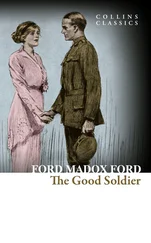“No way,” he said. “He doesn’t have a big imagination.”
Bernhardt fastened his eyes back on the highway. “Then we will have to impress the other man,” he said. “Mr. Deats. I will have to find a way to do that.”
“What happens meantime?” His mind was on Rae. It was too late to call her in Texas. She’d be out of the motel already.
“We will purchase the document of release,” Bernhardt said evenly. “I will go on with the arrangements to the judge. You will meet your wife. Things will go as we planned them. We can’t worry about Mr. Deats. It is a delicate situation.”
They were approaching the army spec station from the opposite direction. More buses sat queued on the dusty shoulder wheezing smoke. Soldiers were busy on top of the lead coach throwing boxes and bundles on the ground while the Indians stood passively with their arms over their heads. The red travel van that had been in the queue before was parked beside the station hut with all its windows broken and its seats pulled out. None of the girls was around anymore. They were Americans, but there was nothing he could do for them, and it gave him a cold bone feeling to wonder where they were and what they were getting to look at next.
Bernhardt pulled out around the buses to center highway, idled to the barricade, showed his license, and was passed.
“In twenty years,” he said when he had gained speed, “Mexico will be governed by defectives, the children of these people.” He motioned backward toward the campesinos standing in the dirt for search. There was a profound sympathy that rivaled distaste in his voice. But it was tone and no substance. “They are fed on garbage. And one day nothing will please them anymore.” He reached under the dash, removed the pistol, and put it back under his coat. “And then you and I will have a big problem.”
“It doesn’t worry me much.” Quinn said. He thought about his own pistol in the bungalow, and Bernhardt’s advice to carry it. It wasn’t smart.
“Why?” Bernhardt said and smiled, as though all the alternatives were amusing.
“Because if that time comes and I’m alive, I won’t be right here.”
“Where will you be?” Bernhardt said.
“Far away from here.”
“One never knows,” Bernhardt said, letting himself be distracted again by the mountains, visible only as a black mass in the west.
“Oh yeah,” Quinn said. “One knows that. One knows that for sure.”
He wondered precisely where, down the line, Bernhardt would bolt. He knew he would somewhere, and he wanted to anticipate it, so that when Bernhardt hit out, there’d be one more option left for himself and Rae. One was enough. He watched a white helicopter skimming the blue air to the east, out of hearing, its tail strung up as if a fine, invisible filament was hauling it on. It was nuts, he thought, to be tied to somebody, two counting Bernhardt, you had no feeling about, but who somehow made all the difference. That was the essence of the modern predicament. The guy who had it in for you was the guy you’d never seen. The one you loved was the one you couldn’t be understood by. The one you paid to trust was the one you were sure would cut and run. The best you could think was maybe you’d get lucky, and come out with some skin left on.
HE HAD MET RAE at the dogs. He had been back from Vietnam eight months and through Pendleton, thinking all the time that the one lesson the war had taught was that everybody back in the world was lucky, and the best thing you could do the moment they turned you loose was push your luck on out and find some way to take a chance and some place to take it.
He had bought a Firebird off a sailor in Oceanside and drove it to Arizona, then down to Corpus Christi and across to Morgan City, Louisiana. In Morgan, the car dropped reverse and while he was waiting for parts he started taking seven-on, seven-offs for a pipe contractor supplying the hammer companies out on the Atchafalaya and Pigeon Bay as far out as Point au Fer. He had had a sense when he joined the marines that the country he was skying out of was a known locale, with a character that was exact and coordinate and that maintained a certain patterned feel. A thing you could get back with if you had a reason. But that patterned feel had gotten disrupted somehow, as though everything whole had separated a little inch, and he had dropped back in between things, to being on the periphery without a peripheral perspective. They weren’t any war dreams of men you’d killed screaming underwater without sound. (He couldn’t commit specific fears to memory.) But he felt alone without quite feeling bad, like being in the afterimage of a catastrophe, though he thought he’d gotten used to catastrophes all right without falling apart.
In Morgan he traded the Firebird and four thousand dollars for a Porsche, decided to hang in for the money, and moved out to company bunks in an Alamo Plaza painted company blue out Route 90. On his seven-off he liked driving up to Kenner to the dog track and playing cards in the bars in Evangeline Parish and working the women. He didn’t have any plans. All the colleges he’d ever been in didn’t teach him what he’d learned in two years out of the world, that once strangers you couldn’t see started shooting guns at you and trying to set you on fire way up in the sky, plans didn’t take you too far. And the only thing smart you could do was try to stay efficient and keep your private shit together. He’d picked up the tattoo in Hawaii. Good conduct was what kept you in the picture, kept ground underneath you instead of on top, and that was the only basic concept you could count on.
When he saw Rae she was standing in the bettors’ pavilion under the grandstand, watching the TV monitor that had a dog race in progress. She was tall and elegant with long red hair, wore tight black jeans that cost some money, and a green halter that showed her breasts. She was holding a copy of Fourier’s New Industrial World under her elbow and a wad of yellow win tickets in her hand, and she looked wrongly placed, which he guessed was the point.
He checked the old men in plaid suits and white socks who were watching the monitor, and the women wheelchair bettors cruising down the concourse in motorized chairs. He wanted to guess which one was paying her bills. His second dog hit, but when he came back holding his $4.80, Rae was still watching the monitor showing the pale pink racetrack with his winning number flashing at the bottom. The guys in plaid suits had all scattered toward the payoffs and the wheelchair women had gone to the refreshments. But she hadn’t moved. And he suddenly liked the air. It had the stacked, cooled feeling of below zero ground, the nonplace where anything thinkable was possible if you didn’t expect a long engagement. It was what the world left available.
He took one more look around. “You waiting for Johnny Carson?” he said.
Rae looked at him and at the four dollars in his hand as though he wasn’t seriously there. She had on dark rouge and her eyes were flecked green. She was exotic looking, like she’d just come from someplace illegal, and she was speeding. That seemed like the right combination.
“What d’you think they do with the ones that don’t win?” she said, and looked back at the suspended screen as though she’d asked the question to no one in particular, not even herself.
“Shoot ’em,” he said quickly, and took another survey of the pavilion, to see if somebody was coming after her.
“I’ve got a candidate, then,” she said flatly, “but he already left, I guess.”
“You just read this crap between races?” he said. He didn’t know who Fourier was, but he was betting he was somebody who started a revolution in Jamaica.
Читать дальше







![Theresa Cheung - The Dream Dictionary from A to Z [Revised edition] - The Ultimate A–Z to Interpret the Secrets of Your Dreams](/books/692092/theresa-cheung-the-dream-dictionary-from-a-to-z-r-thumb.webp)




